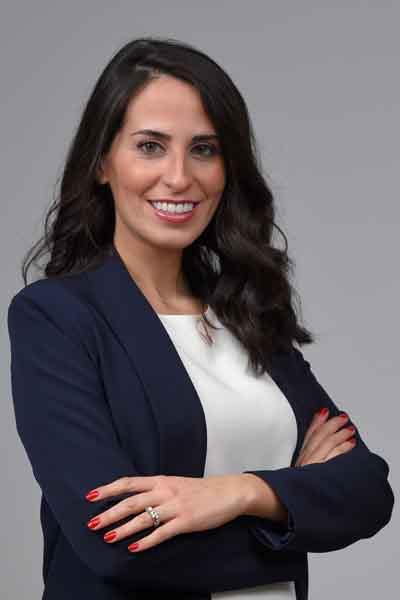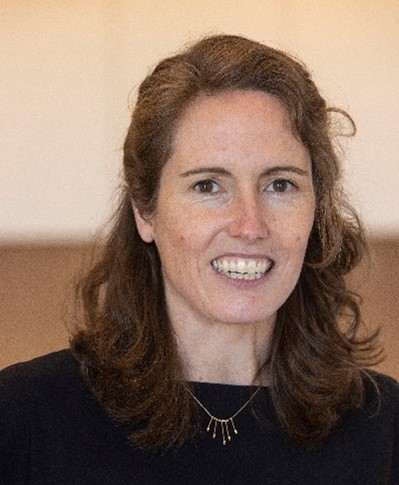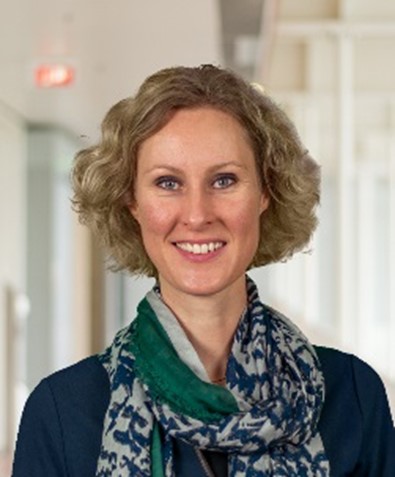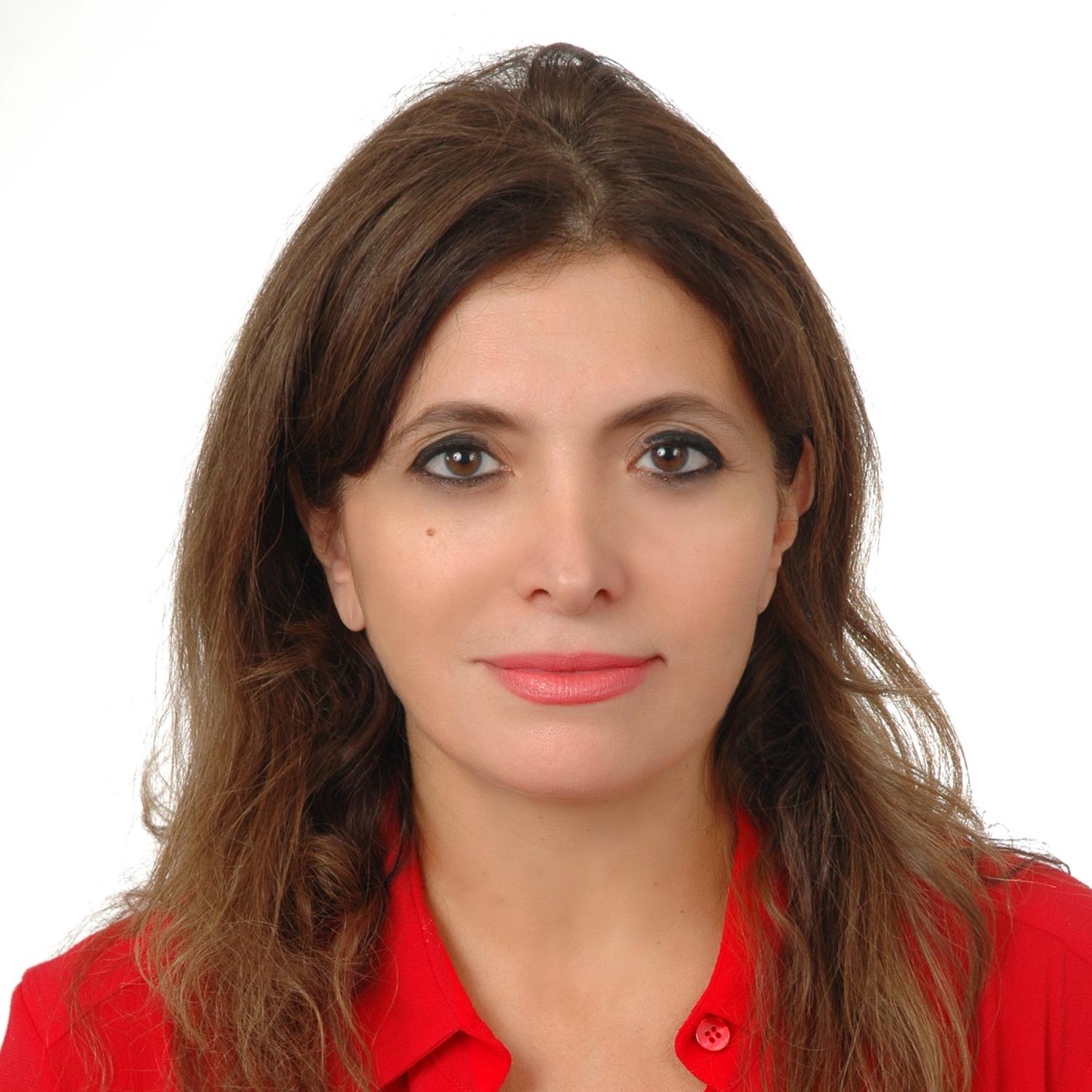Speakers and Abstracts
(Speakers are listed in the order of the programs’ sessions)Session 1: When to Suspect a Familial or Hereditary Cancer Syndrome and How to Test for it?

Eliane Chouery, PhD
Dr. Eliane Chouery obtained her Ph.D. in Human Genetics and Molecular Biology from Université de Versailles Saint-Quentin-en-Yvelines, France in 2008. She had established, in 1998, the Molecular Biology unit for molecular diagnosis, and in 2005 the Human Identification section, at Saint Joseph University (USJ) in Lebanon. Beginning in 2002, Dr. Chouery was in charge of the Molecular Biology and Basic Genetics courses at the same faculty. She was appointed Associate Professor in the Faculty of Medicine of USJ in 2017.
Her research focuses on the identification of genes involved in orphan diseases. She is author or co-author of more than 100 publications.
Dr. Chouery’s previous experience will enable her to contribute to the establishment of the Department of Human Genetics at the LAU Gilbert and Rose-Marie Chagoury School of Medicine. This department will include a genetic counseling unit, a molecular genetic diagnosis unit and a human identification unit; and the Human Genetics faculty will engage substantially in teaching and research activities at the school of medicine.

Cybel Mehawej, PhD
Dr. Cybel Mehawej obtained her Ph.D. in Genetics from Paris Descartes University and from Saint-Joseph University (USJ) in 2013 (International Dual Degree Ph.D.). Her doctoral work aimed to identify new genes involved in skeletal dysplasia. In 2015, Dr. Mehawej joined Dr Raif Geha’s laboratory at Boston Children’s Hospital, Harvard Medical School as a postdoctoral fellow, where she focused on the identification of the molecular bases of Primary Immunodeficiency Diseases (PIDs). During her Ph.D. and postdoctoral training, Dr Mehawej acquired skills in sophisticated molecular and functional genetics tools and techniques, including Next Generation Sequencing applications and analyses and the CRISPR-Cas9 technology. In July 2017, Dr. Mehawej was recruited as Assistant Professor at the Faculty of Medicine at USJ where she was in charge of teaching medical students in functional genetics and immunogenetics. She was also appointed Head of the functional genetics section at the Medical Genetics Unit at USJ. Dr Mehawej was in charge of the molecular diagnosis of patients with PIDs. Furthermore she contributed to the implementation of TREC-based neonatal screening for severe combined immunodeficiency diseases and T-cell lymphopenia conditions in Lebanon, in collaboration with the Ministry of Public Health, American University of Beirut Medical Center and the iFight PID fund.
Dr. Mehawej’s activities have led to the identification of several genes involved in orphan diseases. Her current research focuses on the elucidation of the molecular bases of genetic disorders, with a special focus on PIDs. She is author or co-author of 20 papers published in peer-reviewed journals. In addition she has participated in several international scientific meetings. Dr Mehawej has been the recipient of a number of fellowships and awards, and her work has been recognized by the “Franco-Lebanese Medical Association” which granted her an “Excellence Award” in 2012.
Abstract
Up to 10% of all cancers may result from inherited genetic changes. These alterations confer a higher-than-average susceptibility to developing certain types of cancer. Early onset of the disease, the presence of several family members affected with the same type of cancer, and/or the occurrence of several types of cancers in one individual are all characteristics of hereditary cancer syndromes.
In this presentation, we will discuss warning signs of hereditary cancer syndromes, the process related to genetic testing of the affected patients and family members and what can be done in Lebanon.
Approaches for genetic testing, including advantages and limitations of the different available sequencing tools including
Next Generation Sequencing techniques will be tackled. This will be followed by case discussions.
Session 2: Diagnosis and Counseling of Families with Cancer Predisposition Syndromes

Marjolijn Jongmans, MD, PhD
Dr. Marjolijn Jongmans is a consultant and associate professor in clinical genetics with an affiliation at the UMC Utrecht/Princess Máxima Center for Pediatric Oncology. She developed an internationally well-received test for pediatric oncologists to select children at high risk of being affected by a cancer predisposition syndrome. Her topic of expertise is diagnostics and counseling of children with cancer predisposition syndromes. She coordinates clinical genetic services for children with cancer in the Princess Máxima Center, including the development of genomics related consent procedures and syndrome specific surveillance guidelines. Her research at the Princess Máxima focuses entirely on childhood cancer genetics and predisposition. Currently, Marjolijn is chair of the SIOPE Host Genome Working group.
Abstract
Germline genetic factors play an important role in the development of childhood cancer. In an estimated 8-10% of children with cancer, an underlying genetic cause can be identified. Recognition of genetic predisposition in children with cancer is of high clinical significance since it might influence therapy choices, surveillance policies and counseling of relatives. Cancer predisposition syndromes (CPSs) can be suspected based on specific hallmarks such as a positive family history or the presence of congenital anomalies. Due to the expanding phenotypic diversity, the upfront ‘phenotype based’ recognition of CPSs is becoming more challenging for clinicians, and genotype-based approaches are emerging. In this presentation, Dr. Jongmans will share daily experiences and challenges in the diagnosis and counseling of children with a CPS, and she will elucidate on recent studies aimed to improve CPS recognition.
Session 3: Therapeutic Implications of Genetics and Hereditary Cancers

Hady Ghanem, MD
Dr. Ghanem is an American-Board Certified Physician in Internal Medicine, Hematology and Oncology. He currently holds the position of Chief of the Hematology-Oncology division at the Lebanese American University Medical Center – Rizk Hospital (LAUMCRH). He attended medical school at the Faculty of Medicine, Saint-Joseph University in Beirut where he earned his Medical Degree (MD).
Dr. Ghanem then completed his internal medicine residency at Cooper University Hospital in New Jersey, USA. He then moved to Washington DC and completed a 3-year fellowship in Hematology-Oncology at the Georges Washington University Hospital, which was followed by a sub-specialty fellowship in Leukemia at the MD Anderson Cancer Center in Houston, Texas.
Dr. Ghanem is currently an Associate professor at the Lebanese American University and is extensively involved in medical students and residents teaching. He is the chairman of the hematology oncology division as well as the founder and former director of the hematology oncology fellowship program at LAU Medical Center-Rizk Hospital. He has earned many recognition awards for outstanding clinical achievements during his training and has published more than 40 papers and book chapters.
He is also a member of the alpha omega alpha (AOA) honor society and a member of multiple committees related to patient care, ethics and patient satisfaction, and chairs the Pharmacy and Therapeutics Committee at LAUMCRH besides his duties at the hospital and the university.
Abstract
The therapeutic landscape of oncology has been profoundly reshaped by our growing understanding of genetics and hereditary cancers. This knowledge has unveiled a new era of targeted treatments and personalized medicine, where therapies are tailored to an individual’s unique genetic makeup. By deciphering the genetic mutations driving hereditary cancers, clinicians can pinpoint vulnerabilities specific to the tumor, allowing for the development of precision therapies that hold the potential to be more effective and less harmful than traditional approaches. Furthermore, genetic insights offer opportunities for early detection and risk assessment, enabling proactive intervention strategies that can lead to improved patient outcomes. Integrating genetic information into therapeutic decisions represents a remarkable advancement, underlining the transformative power of genetics in reshaping the fight against hereditary cancers.
Session 4: Germline Predisposition to Pediatric Cancer: Variant interpretation

Esme Waanders, PhD
Dr. Waanders is a laboratory specialist clinical genetics at the UMC Utrecht, with a particular interest in tumor cytogenetics and predisposition to cancer. After obtaining her PhD in 2012, she has dedicated her career childhood cancer genetics and predisposition, initially in Nijmegen, the Netherlands and, since 2016, in Utrecht. Her discoveries include germline PAX5 mutations associated with a susceptibility to acute lymphoblastic leukemia (ALL) and aberrations in IKZF1 as a strong prognostic marker for ALL relapse development. From 2017 to 2022 she has led the EU Cost Action entitled “Leukemia Gene Discovery by data sharing and collaboration” (LEGEND), in which approximately 200 participants from 37 countries participated. Within this Action, she coordinated the organization of many joint meetings to initiate collaboration on susceptibility studies, familial and syndromal leukemia and lymphoma and ethical issues.
Abstract
Each genome contains millions of variants. Most will have no severe consequences and are recognized as normal variation. However, some variants may result in (a higher risk of) an inherited disease. The interpretation of variants and determination whether it is pathogenic and disease associated or normal variation or can be very challenging. Dr Waanders will discuss the aspects of variant classification within the scope of cancer predisposition syndromes and will show tools to help interpret a variant.
Session 5: Cancer Predisposition: What can we Learn from the Tumor?

Roland Kuiper, PhD
Dr. Kuiper is principal investigator at the Princess Máxima Center since November 2016, where his group has a focus on childhood cancer genetics and predisposition. Since August 2022 he is appointed as full professor molecular genetics of childhood cancer predisposition at the University of Utrecht. His research focuses on the identification of genomic aberrations in hereditary and non-hereditary malignancies in children and (young) adults, using a dual approach that looks for germline mutations in DNA from blood, and for specific mutational signatures in cancers that reflect the nature of the predisposing cancer gene. Earlier discoveries in adult cancer predisposition include germline in EPCAM deletions as a novel cause of Lynch syndrome, and biallelic NTHL1 mutations that cause a multitumor cancer predisposition syndrome. Currently, his research focuses predominantly on cancer predisposition in children, with specific interest for leukemia and Wilms tumor predisposition and DNA repair syndromes.
Abstract
Cancer genetics is an emerging field in pediatric oncology, and new discoveries of (candidate) childhood cancer predisposition genes are being reported on a regular basis. Consequently, more and more centers apply germline genetic testing to identify childhood cancer patients with an underlying genetic condition, either by targeted gene panel sequencing or by applying genome-wide approaches. Whereas these strategies improve the recognition of children with germline cancer predisposing variants, it also leads to the identification of many variants of unknown significance as well as of pathogenic variants for which a causal relation is unclear. Our research focuses on a better understanding of how germline cancer predisposing variants result in tumor formation and what somatic footprints of a tumor characterize specific cancer predisposition syndromes. The aim of this research is to improve recognition of childhood cancer predisposition syndromes and identify opportunities for customized treatment and prevention.
Session 6: Lebanese Cancer Families: Key Challenges, Case Presentations and Future Perspectives

Roula Farah, MD, FAAP
Dr. Farah is currently a Professor of Medicine at the LAU School of Medicine Department of Pediatrics in Beirut, Lebanon and LAU Medical Center - Rizk Hospital. She was recently a visiting Professor at the University of Science Po Bordeaux in France and at UZ Brussels in Belgium.
She also completed a Global Masters in Public Health at the Imperial College of London.
She obtained her medical degree from St. Joseph University of Beirut, then completed her General Pediatrics internship at Columbia University in New York, and her residency at Albert Einstein College of Medicine in New York. She completed her fellowship in Pediatric Hematology/Oncology at the University of Texas Southwestern Medical Center in Dallas, Texas, USA and was selected as a chief fellow at the Children’s Hospital of Dallas. She worked in Texas in leukemia basic research and immunotherapy for two years.
She is Board certified by the American Boards of Pediatrics and Pediatric Hematology/Oncology and is a Fellow of the American Academy of Pediatrics.
She has numerous publications in the field of pediatrics and pediatric hematology/oncology and has received several awards for her scientific work.
Her major scientific interests in oncology are: brain tumors, leukemias and late-effects, cancer genetics and inherited predisposition to cancer and in hematology: rare bleeding disorders and bone marrow failure syndromes.
She served as president of the Lebanese Pediatric Hematology/Oncology Group and was a member of the executive committees of the Lebanese Cancer Society and the Lebanese Society of Pediatrics.
She is the president and founder of CHANCE association NGO and CHANCE International that supports the treatment of children with cancer, advocates for their rights and raises awareness against cancer. She has organized various national cancer awareness campaigns with the Lebanese ministries of health, environment and education.
Since 2014, Dr. Farah has been in the leadership team of Asia as a member of the Asia Regional Committee of the CCI (Childhood Cancer International). Since 2019, she became a member of the World Health Organization’s Global Childhood Cancer Initiative Working Group. In 2020, she was nominated as a CCI-WHO sub-committee representative for the Eastern Mediterranean (EMRO) region.
Abstract
In this presentation, we will shed light on the multifaceted aspects surrounding familial cancers within the Lebanese population. Identifying a cancer predisposition syndrome in Lebanon and in the Middle East in general is particularly important as incidence might be higher considering the high consanguinity rates. However, diagnosis, management and surveillance might be very challenging. Several factors interfere such as lack of awareness, limited resources and absence of clear national guidelines for screening and follow-up. Not to mention the psychological, emotional and financial strains that follows such a diagnosis.
Insightful case presentations in a series of 55 families, offering real-life narratives that exemplify the struggles and triumphs of Lebanese families grappling with inherited cancer will be presented.Prospective avenues for improvement will be contemplated in order to overcome the obstacles faced by those patients and their relatives.